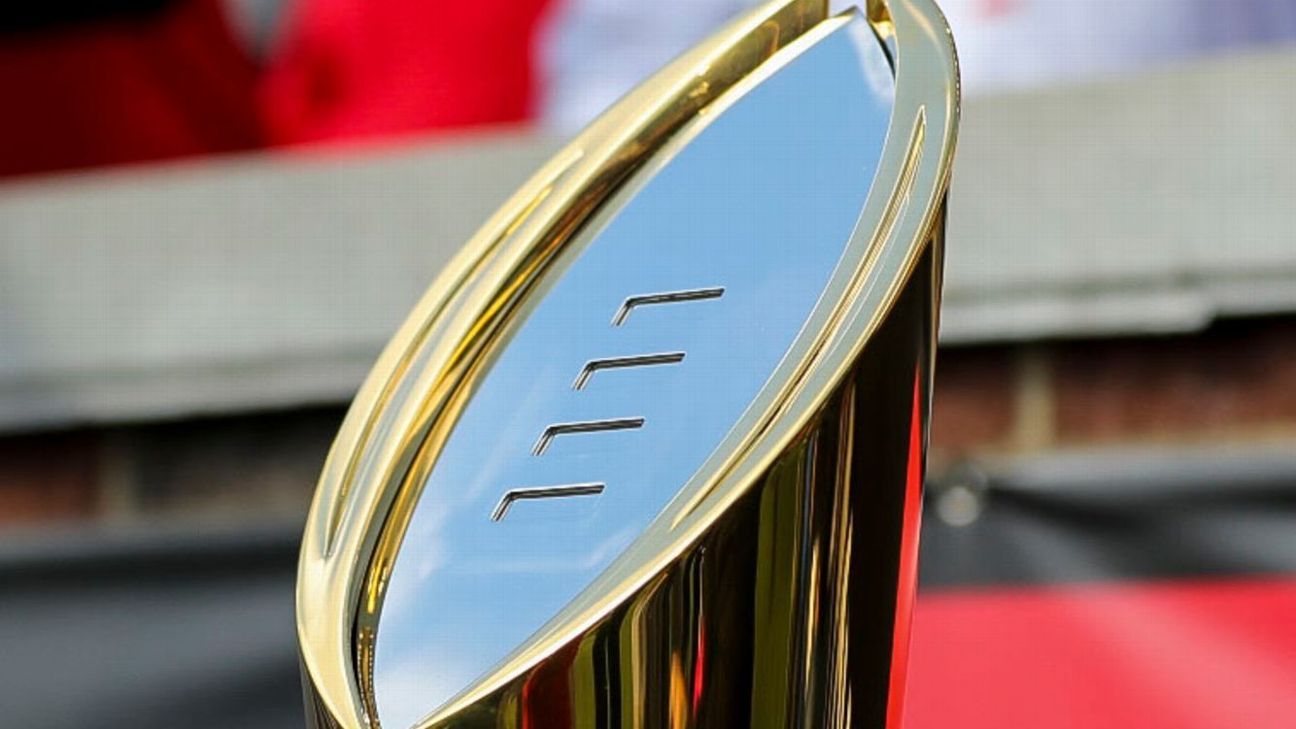After months of lengthy debates and multiple meetings about expansion, the College Football Playoff will remain at four teams through the end of its current 12-year contract, which expires following the 2025 season, CFP executive director Bill Hancock told ESPN on Friday.
By choosing to remain at four teams for four more years, the 10 FBS conferences and Notre Dame have forfeited roughly $450 million in potential revenue.
On Wednesday afternoon, the 10 FBS commissioners and Notre Dame athletic director Jack Swarbrick held a critical videoconference in which they determined they could not come to a unanimous agreement on the proposed 12-team format that was made public on June 10. They made a recommendation to the CFP’s board of managers, which is comprised of 11 presidents and chancellors who have the ultimate authority over the playoff, to stay with the current four-team field through the duration of the current contract.
The CFP’s board of managers held a videoconference on Thursday and approved the recommendation.
“I understand, this is complex, and I recognize the conferences’ positions,” Hancock told ESPN in a brief phone interview from China, where is a volunteer for the Olympics. “I’ve been around long enough to know that setbacks are sometimes temporary.”
Hancock said he still believes an expanded field is possible in the next contract.
“I know because I’ve heard the management committee and the board talk about it that they would all like to see the CFP expand, but for Years 11 and 12 there were just several things that stood in the way,” he said. “Not just one thing, but several.”
In order for the playoff to expand before the current contract expires, the 10 FBS commissioners and Swarbrick would have had to unanimously agree to it. ACC commissioner Jim Phillips stated publicly in mid-January that his conference was united in its stance that “this is not the right time for expansion.” He said the sport first needs to consider the impacts of name, image and likeness rules, the transfer portal and an NCAA governance structure that is undergoing a major overhaul.
“We have significant concerns surrounding a proposed expansion model, though we’d be supportive of future expansion once and if these concerns are addressed,” Phillips said at the time. “The membership believes that we have a responsibility in looking at the CFP and college football from a holistic perspective and not just whether to add more teams to a playoff. Collectively, we have much larger issues facing us than whether to expand the CFP early by two years.”
Other major obstacles to expansion included: an inability to appease the Pac-12’s relationship with the Rose Bowl, which wants to cling to its traditional day and time, along with its media rights; disagreements about revenue distribution; and whether the Power 5 conference champions should receive automatic bids to an expanded playoff — a component staunchly supported by the Big Ten, but not a majority in the room.
American Athletic Conference commissioner Mike Aresco issued a rebuttal to the ACC and Big Ten earlier this week in an “open letter to college football.”
In response to the ACC’s big-picture concerns about the state of college athletics, Aresco wrote, “An expanded playoff is about enhancing opportunity regardless of what the future college sports landscape will look like.” He also pointed out that “these overarching issues will likely be debated long into the future” and are “unlikely to be settled in any meaningful way in the next 15 months or so when the CFP decision-makers will have to reconvene either to develop a new playoff plan for 2026 and beyond, continue with the four-team model or abandon a playoff altogether if an acceptable model cannot be agreed upon.”
Aresco also responded to the Big Ten’s push for automatic qualifiers, saying it favors “privilege for privilege’s sake.” The original 12-team proposal, which was created by Swarbrick, Mountain West commissioner Craig Thompson, Big 12 commissioner Bob Bowlsby and SEC commissioner Greg Sankey, included the six highest-ranked conference champions, plus the next six highest-ranked teams.
Friday’s decision to stay at four ends public speculation about the future of the sport’s postseason for now, but the commissioners and Swarbrick still need to determine what it will look like beginning with the 2026-27 season. An in-person meeting to discuss expansion that had been scheduled for March 2 in Dallas with both the commissioners and the presidents has been cancelled.
“Our negotiating window with ESPN begins in October of 2024, so obviously we’ll work back from that because we know it will take some time to create a format we will want to pitch to television,” Hancock said. “We don’t know how long. We don’t have a date set. There’s more than enough time to get this right for the ’26-27 season.”
The CFP also has yet to officially announce the host cities for the final two seasons of the current contract, though ESPN has previously reported the playoff is considering Las Vegas and Miami.
“We will get to that as soon as we can,” Hancock said.
The 2023 national title game will be held Jan. 9 in Los Angeles, followed by Houston on Jan. 8, 2024.
